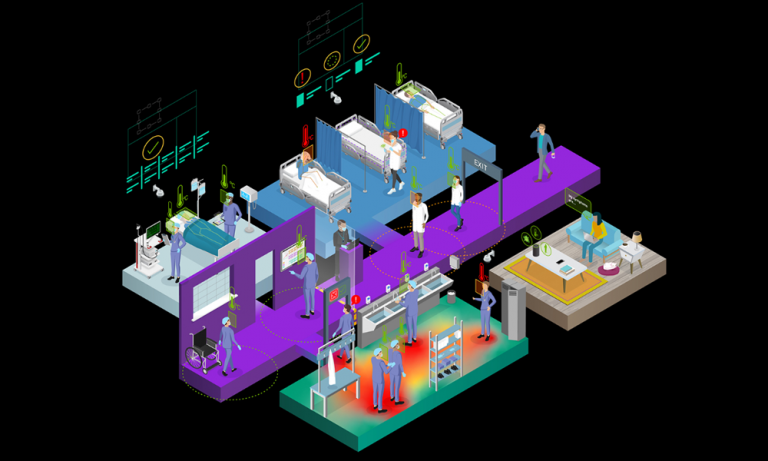 Hosted by the Department of Veterans Affairs (VA), the sprint is designed to foster collaboration with industry and academic partners on AI-enabled tools that leverage federal data to address a need for veterans.
Hosted by the Department of Veterans Affairs (VA), the sprint is designed to foster collaboration with industry and academic partners on AI-enabled tools that leverage federal data to address a need for veterans.
Five NVIDIA Inception partners were named finalists at the 2020-2021 Artificial Intelligence Tech Sprint, a competition aimed at improving healthcare for veterans using the latest AI technology. Hosted by the Department of Veterans Affairs (VA), the sprint is designed to foster collaboration with industry and academic partners on AI-enabled tools that leverage federal data to address a need for veterans. See the official news release for more details about the competition.
Participating teams gave presentations and demonstrations judged by panels of Veterans and other experts. 44 teams from industry and universities participated, addressing a range of health care challenges such as chronic conditions management, cancer screening, rehabilitation, patient experiences and more.
Majority of the solutions from NVIDIA Inception partners were powered by NVIDIA Clara Guardian, a smart hospital solution for patient monitoring, mental health, and patient care.
- JumpStartCSR created ‘Holmz’ – a data source agnostic explainable AI (XAI) that provides a digital physical therapy to prevent and treat overexertion/repetitive stress injuries. Holmz can predict plantar fasciitis and identify root causes two weeks in advance of its occurrence with 97% accuracy and 99% accuracy one week in advance of occurrence. Holmz is also capable of predicting fatigue related falls and identifying their root causes 15 minutes in advance of their occurrence with 99% accuracy. The trained solutions are 4 to 5x faster using TensorFlow with NVIDIA T4 GPUs on AWS. They are piloting their XAI with the VA’s Physical Medicine and Rehabilitation group and expanding their digital physical therapy solution to include performance improvement and prediction for the US Army.
- Ouva is an Autonomous Remote Monitoring and Ambient Intelligence platform that is designed to improve patient safety and operational efficiency. Their solution leverages cuDNN, TensorRT, Transfer Learning Toolkit in NVIDIA Clara Guardian and runs on an NVIDIA RTX 6000 GPU. During the course of VA tech sprint, Ouva was able to predict sepsis infection 24 hours ahead of clinical diagnosis by looking at nine biomarkers from EMR collected from 40,000 patients. By processing data from telehealth cameras with AI, Ouva allows nurses to keep an eye on more patients at remote or isolation conditions. They have started deploying their remote care monitoring solution in Europe and piloting it in the US. Their near-term goal is to combine Ouva’s unique patient activity data with Electronic Medical Records (EMR) to uniquely predict more cases like Sepsis with increased accuracy.
- PATH Decision Support Software, a GPU-accelerated expert system that recommends drug regimens for patients with type 2 diabetes. Their solution was developed on CUDA using NVIDIA GPUs on AWS and achieved 20x speedup. The software’s recommendations have shown a 2.1-point reduction in HbA1c and a $770/patient/year reduction in unplanned diabetes-related Medicaid claims. The team is currently working on EMR integration and expanding the list of medicines it can evaluate.
- Dialisa is a digital nutritional Intervention platform that detects onset and monitors progression of chronic kidney disease (CKD) and delivers digital nutritional intervention to delay the progress of the disease. They use TensorFlow and CUDA optimized on NVIDIA GPUs on AWS, achieving an accuracy of 93.2% in detecting onset of CKD using generic longitudinal dataset provided by the National Artificial Intelligence Institute (NAII) at the Veterans Administrations. Dialisa looks to demonstrate the feasibility of their algorithms and remote monitoring platform in the veterans community, and welcome additional clinical partners to conduct pilot study in the general population.
- KELLS, an AI-powered dental diagnostic platform, used TensorFlow and PyTorch optimized on NVIDIA T4 GPUs on AWS P3 instances and achieved 3x higher efficiency in training than previously used AWS G4 instances. KELLS’ technology has demonstrated to improve accuracy of detecting common dental pathologies up to 30% for average dentists, especially for detecting early signs of oral disease, enabling more timely and effective preventative care. They continue to expand their platform to support more clinical findings across different data modalities and increase quality and accessibility of dental care for patients.
“We were overwhelmed with the overall quality of proposals in this very competitive cycle, it’s a great tribute to our mission to serve our veterans,” said Artificial Intelligence Tech Sprint lead Rafael Fricks. “Very sophisticated AI capabilities are more accessible than ever; a few years ago these proposals wouldn’t have been possible outside the realm of very specialized high performance computing.”
NVIDIA looks forward to providing continued support to these winning Inception Partners in the coming Pilot Implementation program phase, and to the contributions their AI solutions will make to the important VA/VHA healthcare mission serving our Nation’s veterans.
Build your patient care solutions on Clara Guardian >
